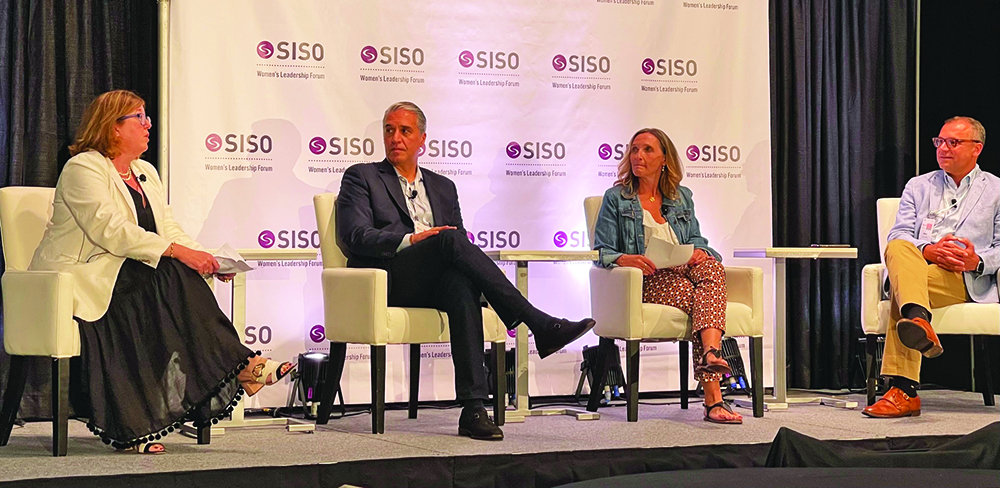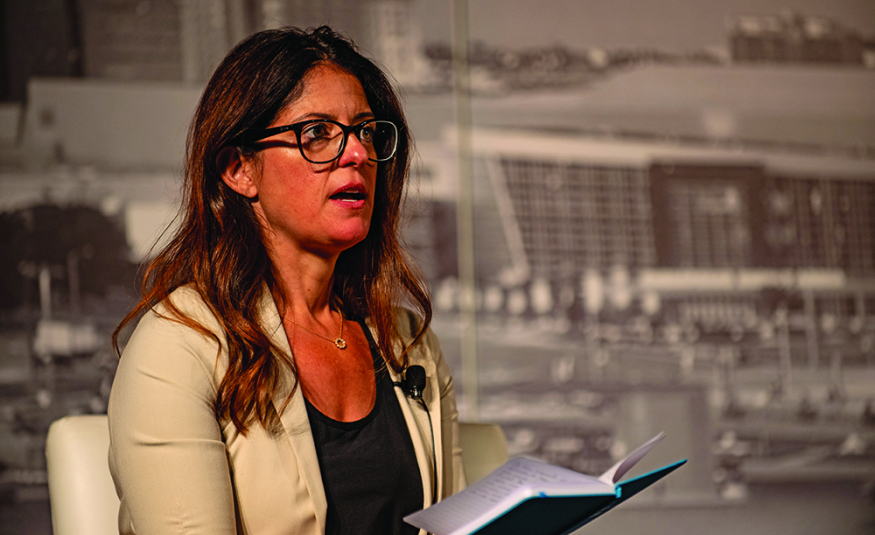Stephanie Selesnick reports from SISO’s Summer Conference: Women’s Leadership Forum
With a mix of almost 70 up-and-coming exhibition leaders and industry veterans, the SISO Women’s Leadership Forum (WLF) was held the day prior to the organisation’s Summer Conference in the US in early August. The interactive day focused on helping attendees be better leaders.
Rachel Wimberly, EVP business development and M&A US, Tarsus Group and chair of the day-long event said: “The SISO WLF was thoughtfully planned with the help of a few great people from the SISO Women’s Special Interest Group.”
“By starting the day with a workshop led by speaker Karen Gifford speaking about ‘Positive Intelligence’, the idea was to open everyone’s minds and have them look within to see what steps they could take to help not only themselves, but also their teams.”
The afternoon was spent on tactical issues, kicking off with Entrepreneur Talk, a panel discussion featuring Martha Donato, president of Mad Event Management (and president of the Women in Exhibitions Network North America Chapter), Jennifer Hoff, president of both Taffy Event Strategies and the Trifecta Collective, LLC, and Michelle Metter, partner, Fast Forward Events (pictured above).
Creating and maintaining an exhibition management company from scratch – along with launching and managing exhibitions – is not for the faint of heart. There is no corporate safety net. If you fail, it’s your own money lost, not the company’s.
If you lose a show management client, it can take a long while to replace them – along with the displaced income.
All three women discussed their respective entrepreneurial journeys, then moved onto to share knowledge and advice. Metter, who’s company owns and produces the San Diego Bay Wine & Food Festival (consumer) and SommCom (B2B) said: “Being uncomfortable is good as an entrepreneur – if you get too comfortable, you aren’t doing enough.”
She suggested: “Collect people around you that help you succeed.” In other words, build a team that is invested in helping to grow your shows and business.
Donato has launched over 33 events to date. With launches, she advised: “Trust your gut. You can’t be risk adverse. You must be a risk taker – not necessarily a risk seeker. Make sure to have a (financial) safety net if the event is cancelled.” She has a consultancy business which helps fund launches while they get up and running.
Hoff, who is both show organiser/manager and helms a private equity-funded M&A company, said that the hardest part of being an entrepreneur is that there’s a lot of work involved with the business of having a business.
“My first two years involved a lot of juggling and wearing many hats (sales, finance, marketing, administration), then as I began to hire people and take on more business, it became about processes for the company.”
“Presently, it’s no longer all about me personally growing and managing the business. There are others in the company who now have those responsibilities. It has and will change.” She’s up to 20+ employees.
Metter said her title is, “Chief problem-solving officer all the time. I’m head of HR, IT, Finance. Our company is idea rich until we can afford to launch new products and events. When you take a risk, sometimes it falls short, and you have to be prepared for that.”

With the current personnel shortage in the exhibition business, the next panel provided a solution to the problem: gig workers – or as we prefer to call it, the business of consultancy.
Moderated by Courtney Harold, Tied Together Marketing; Nora Ellingwood, Nora Ellingwood Consulting and Stephanie Selesnick, president, International Trade Information, Inc. (yours truly), our session gave advice on hiring and using consultants to supplement teams and increase knowledge by using experts for specific projects instead of hiring a full-time person.
“For example,” Ellingwood said, “hiring a consultant makes sense when your organisation needs to fill a hole or void, has a lack of internal expertise, or wants to launch a new event or programme. We come in with our experience and help your organisation and teams be successful.”
I quoted author Alan Weiss: “A contractor provides a pair of hands. A consultant provides a brain.” Other benefits of hiring a consultant include a limited time commitment, no added benefits/salary, and expertise – we go to a lot of shows and therefore see a lot of new ideas on exhibit floors. We have fresh eyes and objectivity.
Plus, we don’t want your jobs!
Harold added: “Don’t view consultants as solely an expense, but instead as a revenue generator. I have developed and launched recurring, scalable, and profitable events and activations for customers; digitally and face-to-face, from ideation to execution.”
Wimberly said: “The day ended with an important panel called Being Heard at the Table led by Mary Larkin from Diversified, along with Janice Rogers, also from Diversified, Hervé Sedky from Emerald and Fernando Fischer from RX Americas.”
“Now that women are at the business table, how can male leaders help them be better heard? The conversation was honest, very raw, and impactful.”
When queried, 100% of the audience raised their hands in affirmation: “Have you ever been at a meeting where you proposed an idea, it was ignored and five minutes later a man in the meeting said the same thing – and everyone thought he had originated the idea, even though you had?”
How to solve the problem? Larkin said training, coaching and awareness is needed for both sexes. Both Sedky and Fischer said being more aware of the bias has helped them become better leaders. Rogers said it’s still up to women to present themselves more strongly and confidently – and to use strong language just as their male counterparts do.
Clearly there’s more work and discussions to be had to resolve this issue.





